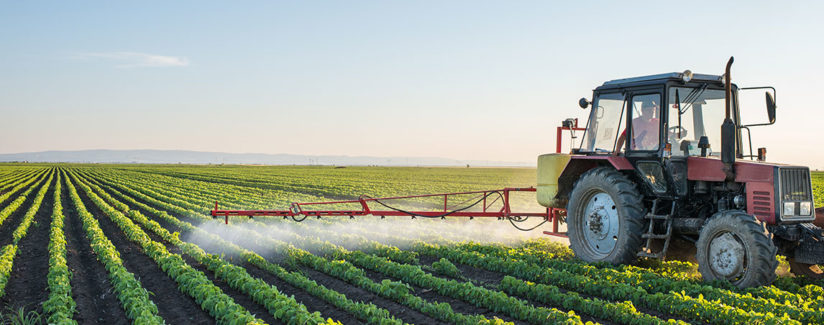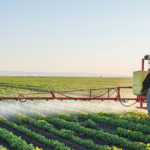
How Much Pesticides Are Used on Crops?
Growing up, we were told at least a thousand times to eat our fruits and vegetables. While we know they are good for us, there have been questions about their safety because of pesticide use. A pesticide is defined as a substance used for destroying insects or other organisms harmful to plants or animals. We asked Dr. Ruth MacDonald, chair of the Department of Food Science and Human Nutrition at Iowa State University, why farmers use pesticides.
“Modern pesticides have been developed that target very specific plant or insect metabolic pathways to reduce damage to plants or humans,” Dr. MacDonald said. “How they are used also varies greatly by the way they work… both weeds and insects can do significant damage to a crop.”
Dr. MacDonald added that in general, farmers try to use as few pesticides as possible and the United States Department of Agriculture carefully monitors pesticide use. Just how much pesticide is used varies by the crop and the purpose. Jennie Schmidt, registered dietitian and farmer, said the amount is probably less than you think. “Spraying isn’t dousing like many people believe,” Schmidt said. “In fact, what many people don’t know is that when they see a farmer spraying their crops, the majority of what they are spraying is actually water.”
William Layton, a third-generation Maryland farmer and owner of Layton’s Chance Vineyards and Winery, explained that on his farm, they have been working for generations to learn about plants, pesticides and what happens in the soil. “Farmers are very conscious about what they put on the land. Pesticides don’t hurt soil; they are taking care of the things that hurt crops,” he said.
Organic and conventional are two methods of farming that generate a lot of conversation and debate in regards to chemicals used and overall comparisons. What’s the difference between these two?
Dr. MacDonald said, “Farmers must follow the National Organic Program guidelines to be certified to produce organic foods. In practice, there is actually a great deal of commonality between organic farming and conventional farming.”
One thing they have in common is that both methods use pesticides. Sometimes it is believed that organic fruits and vegetables are healthier because they don’t use pesticides, but that’s not the case.
“Agriculture of any kind requires effective use of pesticides to ensure a high quality product,” said MacDonald. She added, “Organic farmers battle the same pests as conventional farmers. Therefore, chemicals are needed to produce a crop… Generally, natural substances are allowed and synthetic substances are not.”
Dr. MacDonald said foods that are grown using conventional methods are safe. “There are very limited reports of health effects caused by pesticide exposure in humans,” she said. “The main reports are of acute overexposure from accidents. The types and amounts of pesticides used in the U.S. today are well monitored and have been tested for safety.”
That’s why experts encourage individuals to eat more fruits and vegetables – whether they are conventionally or organically raised – because they are all safe and nutritious.
If you’re concerned that pesticide residue on fruits and vegetables may cause health problems, we’ve put together this infographic to represent just how much pesticide is used and how many servings of an individual product you can have in a single setting without any effects.




























